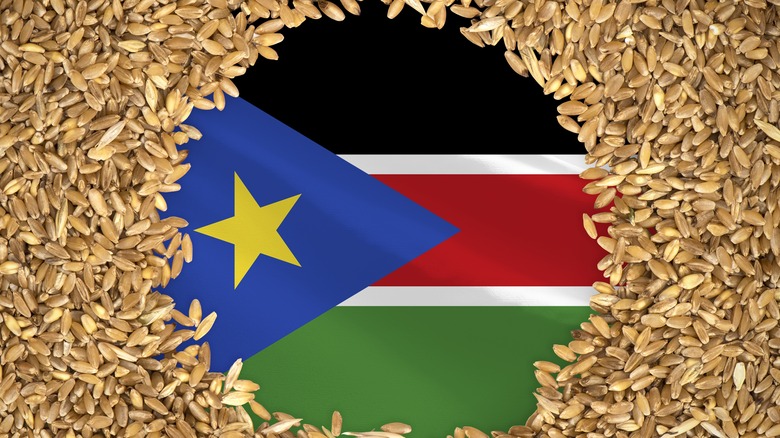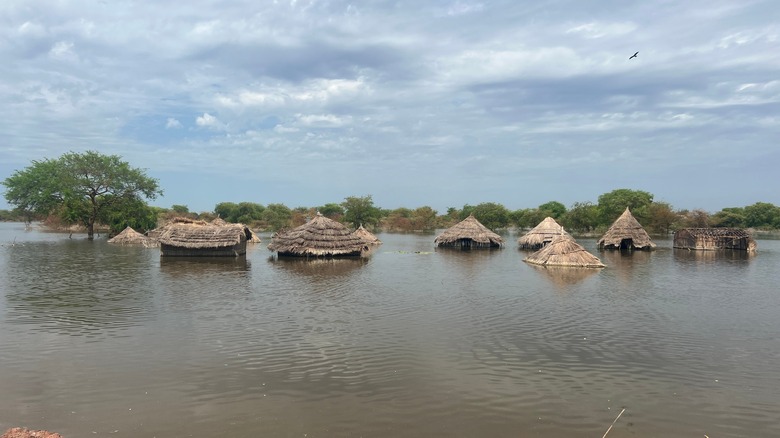Why The UN Is Cutting Back Its Food Assistance To South Sudan
With worsening conditions and rising food prices as environmental catastrophes continue, the humanitarian emergency in South Sudan seems to have no end in sight. In the midst of 7.76 million people plunged into crisis levels of food insecurity and 1.4 million people suffering severe malnutrition, the United Nations World Food Programme (WFP) is cutting back on food assistance to South Sudan due to a critical lack of funding.
A press release from the UN explains the grave decision in detail: With less than half the requested funding, the WFP is shifting focus in order to provide food assistance to the 3.2 million people "closest to starvation" first and foremost. However, even the communities receiving aid will be rationed to ensure food supply throughout the year due to the WFP not having enough resources to fully meet their needs at this time.
The WFP has very little in the way of internal UN funding and relies primarily on donations from governments as well as private entities. As the global food crisis continues, it seems there just aren't enough resources to adequately address ongoing emergencies anywhere. Earlier this year, the UN was also forced to cut its response to Haiti's food shortage due to a lack of funding. On the same day as the South Sudan press release, the WFP also announced cutbacks on food aid to Afghanistan for the same reasons.
Underfunded and stretched thin
While unavoidable, the decision to cut back on food aid in South Sudan couldn't have come at a worse time. The country had already been teetering on the brink of famine due to a combination of catastrophic flooding and drought in the past few years, forcing many residents to flee to neighboring countries such as Sudan. Since the Sudanese civil conflict that erupted in April of this year, however, many of these refugees have been forced to return to South Sudan to escape the violence. The UN's already strained crisis response has been stretched thin to accommodate the influx of returnees as well as Sudanese refugees. According to the UNHCR, a transit center set up to accommodate 3,000 displaced people is currently housing 8,000 refugees in deteriorating conditions without sufficient funds to support them all.
As of the press release, the WFP has only received 46% of the $1.7 billion needed for its 2023 crisis response and has also been forced to cut back on other assistance programs such as water, sanitation, and shelter. With no end to the conflict or climate catastrophes in sight, the WFP will need $567 million in donations within six months to adequately distribute emergency aid as well as fund existing long-term stability initiatives in South Sudan.

